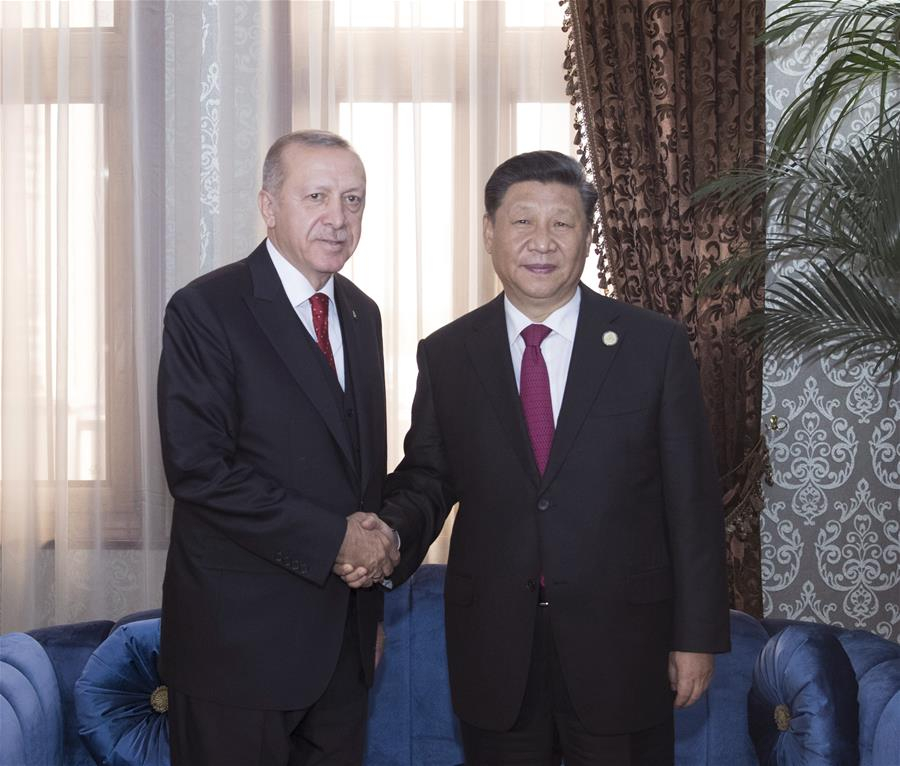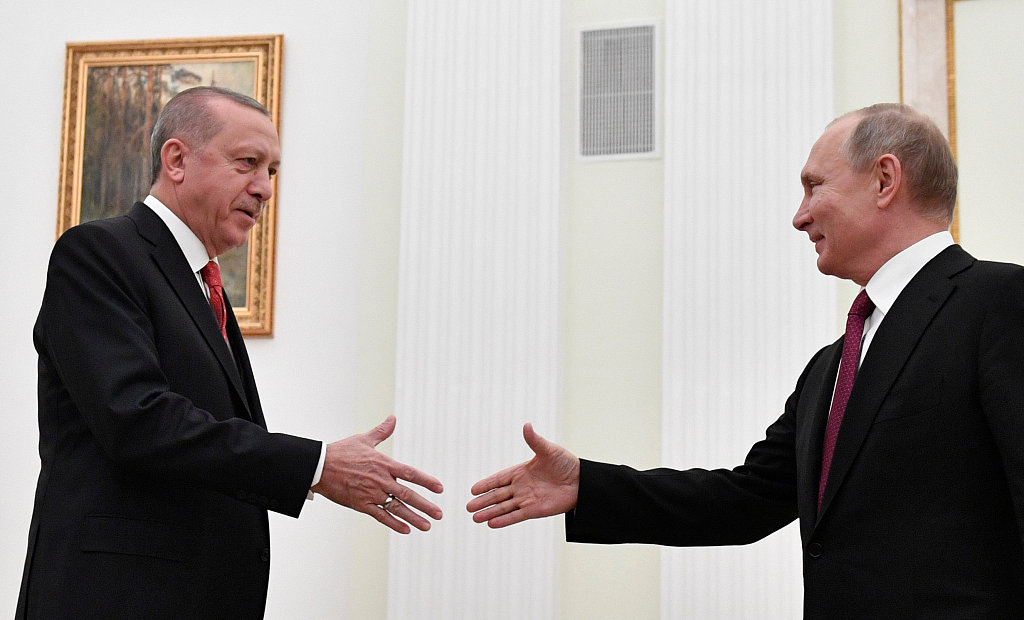

Editor's note: Andrew Korybko is a Moscow-based American political analyst. The article reflects the author's opinions, and not necessarily the views of CGTN.
The upcoming visit of Turkish President Recep Tayyip Erdogan to China on July 2 carries with it high hopes that progress will be made on integrating his country's "Middle Corridor" with BRI. The "Middle Corridor" is Turkey's vision of connecting with its civilizational cousins in Central Asia and further afield with China, thus pioneering a new East-West trading route through the middle of Eurasia (hence the name) that perfectly complements the goals of Beijing's Belt and Road Initiative (BRI).
The Turkish leader spoke to the press prior to departing for last week's G20 Summit ahead of his planned trip to China and praised BRI for being "an important opportunity for nations of the geography that it encompasses to come together". He also said that "we consider our ties with China as based on a comprehensive strategic partnership and on the principle of one-China policy", signaling just how important he regards his upcoming visit as being.
Bearing in mind what President Erdogan said about BRI and his country's comprehensive strategic partnership with China, it's entirely reasonable to predict that the "Middle Corridor" will play a prominent role during his trip. China is already one of Turkey's main trading partners, but it could prospectively become the top one if the "Middle Corridor" integrates with BRI and the two countries begin joint projects in the shared Central Asian space between them.

Chinese President Xi Jinping (R) meets with his Turkish counterpart Recep Tayyip Erdogan in Dushanbe, Tajikistan, June 15, 2019. /Xinhua
One could argue that there's already an informal linkage between these two connectivity visions since Soviet-era rail routes connect China to the Caspian Sea-bordering countries of Kazakhstan and Turkmenistan while a new rail route was recently opened between Baku, Tbilisi, and the east Turkish city of Kars in 2017, with the combination of these two mixed with trans-Caspian shipping laying the basis for integrating the "Middle Corridor" with BRI.
The "Middle Corridor's" importance to Turkey goes beyond just improving connectivity with China but carries with it a deep socio-cultural significance since its countrymen are related by ethnicity, language, and history to all of Central Asia's indigenous people apart from the Tajiks. It's been the dream of many Turks to restore their centuries-old ties with these fraternal people ever since the dissolution of the Soviet Union opened up those countries and made it possible to interact with their citizens.
The "Middle Corridor" is therefore just as much about socio-cultural interactions as it is about facilitating economic transactions, which is yet another commonality that it shares with BRI and thus a reason why President Erdogan might bring this vision up during his forthcoming trip to Beijing, especially after his remark about how BRI is "an important opportunity for nations of the geography that it encompasses to come together".

Russian President Vladimir Putin (R) shakes hands with his Turkish counterpart Tayyip Erdogan during a meeting at the Kremlin in Moscow, Russia, January 23, 2019. /VCG Photo
An official acknowledgement from the Chinese and Turkish leaders of this geostrategic fact would go a long way towards raising awareness among entrepreneurs of this developing connectivity corridor just like President Putin's statement of intent during April's Belt and Road Forum to integrate the Eurasian Economic Union with BRI did two months ago.
In fact, when considering that Russia has excellent relations with both China and Turkey, and that all three countries have strategic connectivity interests in Central Asia, the possibility presents itself of this landlocked region becoming a land-linked meeting ground between each of them.
There's a perfect overlap between BRI, the Eurasian Economic Union, and the "Middle Corridor" visions, so it's logical for each of their state backers to multilaterally cooperate in this respect in order to advance their interests and collectively improve the livelihoods of the Central Asian people.
(If you want to contribute and have specific expertise, please contact us at opinions@cgtn.com)

Copyright © 2018 CGTN. Beijing ICP prepared NO.16065310-3
Copyright © 2018 CGTN. Beijing ICP prepared NO.16065310-3